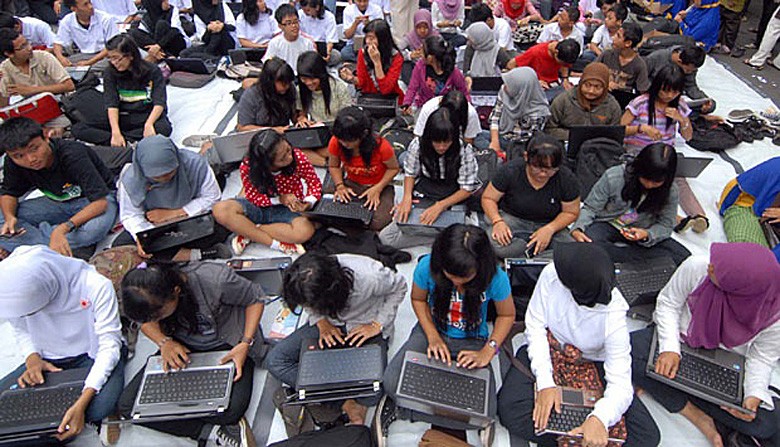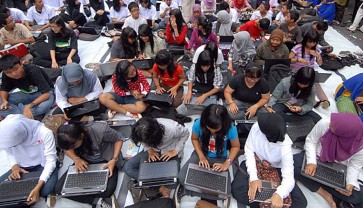Popular Reads
Top Results
Can't find what you're looking for?
View all search resultsPopular Reads
Top Results
Can't find what you're looking for?
View all search resultsIntegrating digital skills in ASEAN education to boost digital literacy
ASEAN needs to ramp up its education system to increase digital literacy among students across all member states, ideally through formal education, so the region's future leaders are equipped to engage and thrive in the digital transition.
Change text size
Gift Premium Articles
to Anyone
A
dvancements in digital technology are constantly reshaping the world of work, necessitating significant reskilling to keep up with changing labor markets. According to The Future of Jobs Report 2023 by the World Economic Forum, approximately 44 percent of the existing workforce’s skill sets are projected to undergo disruption within the next five years.
Analytical thinking and creative thinking are among the skills considered most crucial, while systems thinking, artificial intelligence (AI) and big data are identified within the top 10 growing skills.
This trend is particularly relevant for ASEAN. As the region gears up for digital transformation, it must strengthen digital literacy among its youth to create a workforce equipped with the right skill sets. Reskilling and upskilling the ASEAN workforce is increasingly important, and integrating digital skills early in formal education is crucial.
ASEAN has made efforts to improve digital literacy rates in the region, establishing frameworks like the Digital Economic Framework Agreement (2023), the Declaration on the Digital Transformation of Education Systems in ASEAN (2022) and the Framework for Developing Digital Readiness Among ASEAN Citizens (2021).
More recently, ASEAN released the 2022-2024 ASEAN Digital Literacy Program (ASEAN DLP) in an effort to foster improved media literacy. The program’s five main activities are: capacity building through Training for Trainers (ToT) and training sessions for end beneficiaries, establishing the ASEAN Youth Advisory Group, launching an awareness campaign, conducting regional research on digital literacy and developing an e-learning platform.
Despite these efforts, ASEAN member states still face significant challenges in improving digital literacy rates and educating its youth on digital skills. Adoption of digital skills in schools across the region remains generally low.
According to Digital Literacy in Education Systems Across ASEAN (2021), the majority (61 percent) of individuals aged 10-24 were not being taught digital skills in school, with only a small fraction exposed to digital skills education in Laos and Myanmar.



















